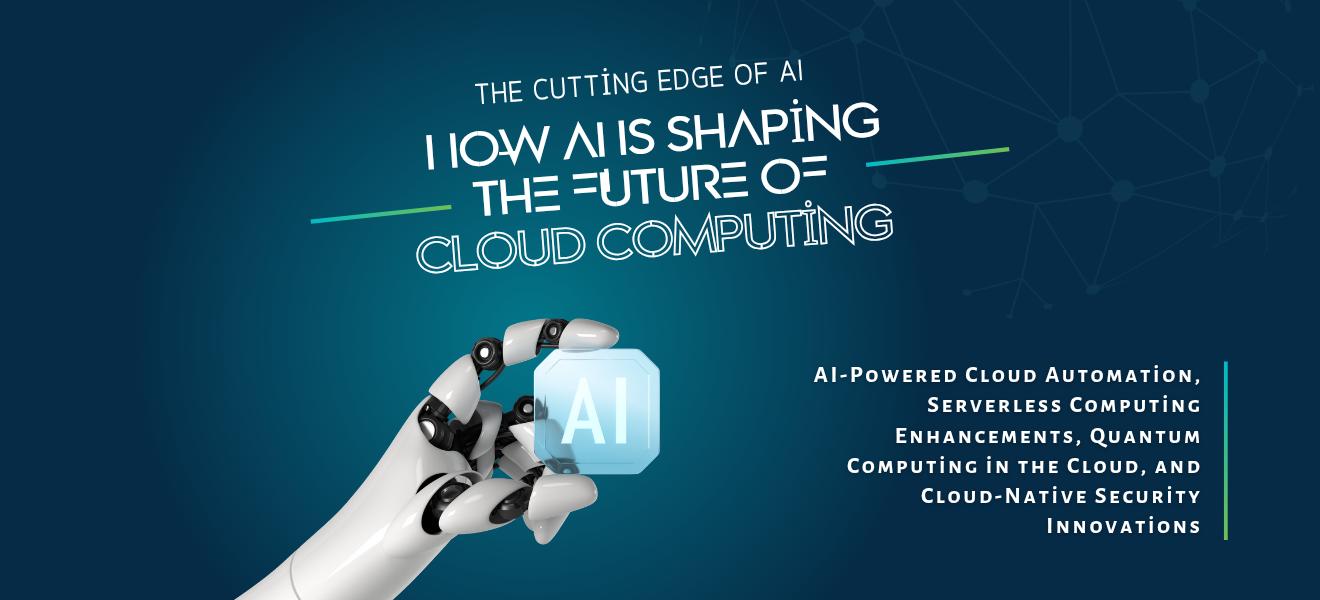The Growth of AI and Machine Learning in Saudi Arabia.
Get in Touch
-
Phone
+971 585156906
-
Email Now
contact@weeflare.com
-
Marina Square, Reem Island, Abu Dhabi, UAE

Cloud computing continues to evolve at a rapid pace, driven by advancements in artificial intelligence, security, and infrastructure optimization. Below, we explore the most significant technical developments shaping the future of cloud computing.
Artificial intelligence (AI) is transforming cloud services by enabling automation, predictive analytics, and optimization of cloud workloads. Cloud providers are increasingly integrating AI models to enhance performance, cost management, and security. Some key innovations include:
AI-driven Autoscaling — Smart resource allocation based on real-time demand.
Automated Incident Response — AI models detect and mitigate cyber threats in real time.
Self-healing Cloud Infrastructures — Systems that identify failures and apply patches autonomously.
Serverless architectures are evolving to reduce latency and improve efficiency. The latest advancements include:
Cold Start Optimization — Smart Improved startup times for functions-as-a-service (FaaS).
Edge Serverless Computing — Deploying serverless functions closer to users to minimize response times.
Advanced Debugging and Monitoring — AI-enhanced tools for tracking and troubleshooting serverless workloads.
Major cloud providers like AWS, Google Cloud, and Microsoft Azure are integrating quantum computing capabilities, offering developers access to quantum algorithms via cloud services. Innovations include:
Hybrid Quantum-Classical Workflows — Seamless integration of quantum and traditional computing models.
Quantum Cryptography — Enhanced security protocols leveraging quantum mechanics.
Optimization Algorithms — Solving complex logistical and financial problems at unprecedented speeds.
As cloud adoption grows, so do cybersecurity risks. Recent advancements in cloud security include:
Confidential Computing — Encrypting data in use to prevent exposure during processing.
Zero Trust Security Models — Verifying every user and device before granting access.
AI-Enhanced Threat Detection — Machine learning models that detect anomalies and prevent breaches.
Organizations are increasingly using multi-cloud and hybrid cloud strategies for greater flexibility and resilience. New developments include:
Cloud Interoperability Standards — Open APIs enabling seamless workload migration between providers.
Automated Cloud Governance — AI-powered compliance checks and cost optimization tools.
Edge Hybrid Cloud Computing — Processing data at the edge while maintaining cloud connectivity.
With growing concerns over energy consumption, cloud providers are focusing on sustainability:
Carbon-Aware Cloud Workloads — Automatically shifting workloads to regions using renewable energy.
Efficient Cooling Technologies — Liquid cooling and AI-driven climate control for data centers.
Green AI — Training machine learning models using energy-efficient hardware.
Cloud computing is rapidly advancing, with AI, security, and sustainability at the forefront. As organizations continue to adopt new cloud technologies, these innovations will drive improved efficiency, cost-effectiveness, and security in the digital era. Staying informed about these trends is essential for businesses aiming to leverage the full potential of cloud computing.
Ready to take your business to the next level? Let's create the perfect solution together.